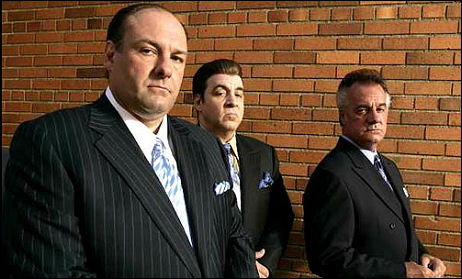“Another problem with killing Tony Soprano [at the end of the about-to-start final season] is how likable he is, despite his pathologically long list of misdeeds and murder. We like him, that’s why we watch the show, and doing him in

“‘Arthur Miller used to say, you don’t go to the theater unless you see your- self onstage,’ says Glen O. Gabbard, a psychiatrist at the Baylor College of Medicine in Houston who wrote The Psychology of the Sopranos: Love, Death, Desire and Betrayal in America’s Favorite Gangster Family. ‘The audience thinks that maybe, just maybe, this bad man can be transformed into a good man. That’s what [Dr. Jennifer] Melfi thinks, that’s what the audience thinks.’
“And yet, something more powerful than the demands of storytelling may dictate Tony’s final fate — Hollywood. Although Chase is ending the series because he’s mined the show for all he can on television, rumors persist about a possible Sopranos feature film. A Sopranos movie without Tony? As the Bada Bing! boys might say, not gonna happen.” — from Martin Miller‘s 4.1.07 L.A. Times piece.









